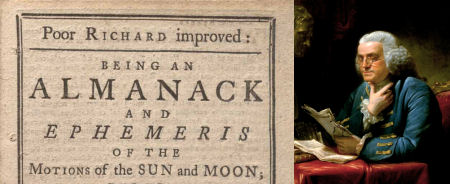Ogden Nash? George Bernard Shaw? James Agate? La Liberté? Winston Churchill? Henry James? Oscar Wilde? Georges Clemenceau?
Question for Quote Investigator: There is a famous humorous saying about the United States that has been credited to four celebrated wits: George Bernard Shaw, Oscar Wilde, Winston Churchill, and Georges Clemenceau:
America is the only country that went from barbarism to decadence without knowing civilization.
Could you reduce the uncertainty and determine who coined this acerbic comment?
Reply from Quote Investigator: A thematic match occurred in 1841 within the book “Histoire des Progrès de la Civilisation en Europe” (“History of the Progress of Civilization in Europe”) by Hippolyte Roux-Ferrand. The following statement was about the ruler of Russia and not the United States. The original French is followed by an English rendering:1
… il fit passer son pays sans transition de la barbarie à la décadence, de l’enfance à la caducité.
… he made his country pass without transition from barbarism to decadence, from childhood to decay.
In 1878 the prominent writer Henry James published a short story with a German character who remarked on the cultural evolution of the United States using a figure of speech based on the maturation of fruit. The following passage is conceptually similar to the quotation, but the vocabulary is different. Thanks to correspondent Rand Careaga for this citation. Boldface added to excerpts by QI:2
… unprecedented and unique in the history of mankind; the arrival of a nation at an ultimate stage of evolution without having passed through the mediate one; the passage of the fruit, in other words, from crudity to rottenness, without the interposition of a period of useful (and ornamental) ripeness. With the Americans, indeed, the crudity and the rottenness are identical and simultaneous;…
The earliest evidence known to QI of a close match for this expression was published in 1926 in The Sunday Times of London. Interestingly, the country being lacerated was Russia and not the United States. In addition, none of the four gentlemen mentioned by the questioner was credited with the words. The theatre reviewer, James Agate, saw a production of the work “Katerina” by Andreyev,3 and he was deeply unsympathetic to the behaviors displayed by the characters:4
Everything that happens to Andreyev’s characters is repugnant to the English sense of what would, should, or could happen to people laying claim to ordinary, i.e. English sanity. This being so, the temptation is to cast about for excuses, to pity Russia for having been left out of the Roman march, and so passing from barbarism to decadence without knowing civilisation, or to talk about “retrogressive metamorphism” and the way this country has been steadily breaking Europe down ever since, in the time of Peter the Great, she first began to absorb European culture.
Here are additional selected citations in chronological order.
Continue reading “Quote Origin: America Is the Only Country That Went from Barbarism to Decadence Without Civilization In Between”
